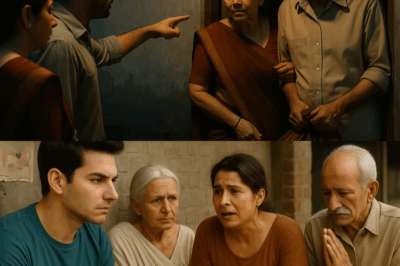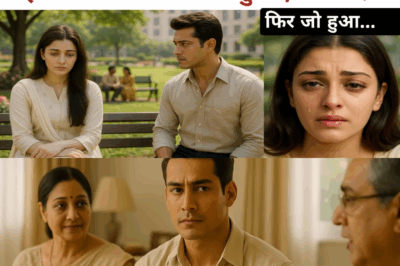Inside the Tumultuous Life of Faisal Khan: Mental Health Allegations, Family Rift, and the Struggle for Independence
Introduction
Bollywood is no stranger to off-screen drama, but the ongoing saga between actor Faisal Khan and his superstar brother Aamir Khan continues to attract both media attention and public sympathy. In a recent marathon press conference, Faisal bared his soul to journalists: he detailed accusations of involuntary confinement, forced medication, family politics, and his arduous legal battle to prove his mental fitness. This exposé not only sheds light on the Khan family feud but also invites a discussion about mental health, personal freedom, and the shadow side of living in Bollywood’s glittering limelight.
An Alleged Ordeal Behind Closed Doors
Faisal Khan’s allegations are nothing short of harrowing. According to his testimony, the troubles began in earnest in 2005. Faisal claims he was confined at Aamir’s residence, kept under guard, and forcibly administered medication against his will for nearly 19 days. These events, he alleges, followed a period where family members—particularly Aamir, supported by some relatives and a psychiatrist—insisted Faisal needed psychiatric intervention despite his own denials.
“Bodyguards were stationed outside my room. I was given medicines forcibly. Aamir instructed me to say I was incapable of making my own decisions in court. I suffered a lot of torture,” Faisal recounted. He insists he repeatedly asked his family why such drastic measures were being taken, and asserts he would have agreed to an evaluation voluntarily had he been approached with respect.
A Prolonged Power Struggle
Faisal’s statements suggest a persistent power struggle and lack of agency in his own life. At one point, he describes how he was denied access to his phone and effectively rendered helpless—subject to the mercy of his influential family. “My uncle took my phone. I felt totally powerless,” he remembers.
He also alleges that Aamir, along with other family members, pressured him to visit psychiatrists, threatening him with further sedation and forced hospitalization if he refused compliance. Faisal’s description of the period is filled with a sense of crisis, confusion, and desperation, as he attempted to maintain his sense of self-worth and sanity amid the ordeal. “I told my family that a day will come when an ant can also defeat an elephant. Maybe that day is today,” Faisal said, referencing his decision to speak out publicly.
A Year in Captivity
A particularly disturbing portion of Faisal’s account involves spending nearly a year “locked up” in Aamir’s house, enduring forced medication. He claims his weight ballooned due to inactivity and the medical regimen. Only after a year, Faisal says, was he eventually allowed to leave, provided he engaged in no “suspicious activity.”
Legal Battles and Mental Health Evaluation
The family drama quickly spilled into the courts, igniting a lengthy legal saga. Faisal recalls advice from an inspector friend to seek an independent evaluation in a government hospital to prove his mental competence. However, the process was far from straightforward. Most government hospitals refused to admit him for evaluation without a family member present—problematic, since Faisal believed most of his family was conspiring against him.
Eventually, with the help of his father, he managed to get a letter that cleared the way for evaluation at Mumbai’s KEM hospital in 2007. To ensure his safety, Faisal even briefly went into hiding while awaiting results, fearing a repeat of prior forced confinement.
Despite various attempts by family to reclaim legal custody—allegedly by insisting Faisal was a danger to himself and society—the courts did not find him mentally unfit. Faisal recalls being required to stay under observation at JJ Hospital for an extended period, ultimately resulting in a verdict that gave custody to his father, not Aamir or other relatives. Importantly, the court declared Faisal “fit and free to live as an Indian citizen,” formally rejecting allegations that he suffered from paranoid schizophrenia.
Social Stigma and Professional Setbacks
Even after his legal victory, Faisal’s professional journey has remained fraught. The damage inflicted by years of rumors about his sanity has made finding work in Bollywood extremely challenging. “Even today people have doubts about whether I am normal. If it is so hard for a normal person to get work, imagine for someone labeled insane,” he lamented. Nevertheless, Faisal continued to pursue creative projects, including lead roles in smaller movies, screenwriting, and even directing and acting in the film “Factory” in 2021.
His family’s stance has continued to haunt his career. He recounted how even after getting a signing amount from “Bigg Boss”—a popular TV reality show—he believes he was removed due to Aamir’s influence and power. “Aamir was afraid I would speak my truth before the world on television,” Faisal asserted, claiming he lost opportunities due to internal lobbying within the industry and his family.
Financial Survival and Cutting Ties
During these lean years, Faisal survived on residuals from old insurance policies, partial land sales, and signing amounts from film projects—though his association with major banners largely dried up. For a brief period, Aamir gave him a job as a “script doctor” on a nominal salary, and when he lost that too, Faisal reportedly pressed for a small monthly allowance to help him survive.
However, Faisal now publicly rejects all financial support from the family, determined to sever all ties and reclaim his independence. He has even taken the drastic legal step of publishing a public notice in newspapers, declaring he no longer wishes to be associated with his family because of the lasting harm and obstruction he alleges they have caused him.
Family Politics and Claims of Jealousy
Faisal’s accusations extend beyond his treatment to broader family dynamics. He claims he was pressured to marry a maternal aunt against his will and ostracized when he refused. The supposed root of his rift with Aamir is, according to Faisal, jealousy over his appreciated performance in the film “Mela”—a rare instance where the younger Khan brother received critical acclaim. “Aamir told me to quit acting after Mela, despite my well-received work,” Faisal recalled.
He accuses Aamir of hypocrisy—in public, Aamir is lauded for tackling “special children” and inclusion in his films, yet, says Faisal, he actively sought to sideline his own brother. “Aamir talks about bringing children into society. But in my case, he wanted to keep me away from society.”
Legal Action and the Fight for Respect
Faisal and his current legal team are now preparing further steps, including petitions to prevent specific family members from interfering in his life and a request to medical authorities to reconsider the license of the psychiatrist involved in his forced confinement. He emphasizes that previous legal action was focused on securing his freedom, not punishing his relatives, but that ongoing interference leaves him with no choice but to escalate.
A Call for Recognition, Not Pity
Throughout the press conference, Faisal emphasized his intent is not to garner sympathy or cash in on controversy—but rather, to clear his name and assert his right to live and work freely. “This press conference is not for benefit or to get more work. I just want my name cleared. The truth should be known,” he reiterated.
He pointed out that for all the politics, favor-trading, and public attacks in Bollywood, standing up and speaking the plain truth—even against immensely powerful people—remains rare.
Conclusion
The Faisal Khan vs. Khan family story is a cautionary tale about the price of being different in a world obsessed with success and conformity. It exposes the cracks in glamorized families, the persistence of stigma around mental health, and the abuse that can arise when fame intersects with personal conflict.
Whether or not one believes every detail of Faisal’s story, it raises urgent questions about consent, family power, legal rights, and the ethics of labeling or confining adults in the name of ‘care.’ Ultimately, Faisal’s battle is a call for dignity and self-determination—not just for himself, but for anyone who has felt powerless against those meant to protect them.
News
छोटे से जज़्बे की बड़ी जीत: सागर की कहानी
छोटे से जज़्बे की बड़ी जीत: सागर की कहानी वाराणसी की भीड़भाड़ वाली गलियों में एक 8 साल का चंचल…
खोई पहचान, मिले रिश्ते: मुंबई से दिल्ली तक आरुषि की तलाश
खोई पहचान, मिले रिश्ते: मुंबई से दिल्ली तक आरुषि की तलाश ताज कोर्टयार्ड, मुंबई का सबसे आलीशान रेस्टोरेंट, आज रात…
परदेस की आंधी: दूरी, विश्वासघात और एक नई शुरुआत की कहानी
परदेस की आंधी: दूरी, विश्वासघात और एक नई शुरुआत की कहानी मुंबई जैसे सपनों के शहर से सैंकड़ों किलोमीटर दूर,…
नेकी का लौटता सिला: सड़क पर भीख माँगता एक बेटा और किस्मत का करिश्मा
नेकी का लौटता सिला: सड़क पर भीख माँगता एक बेटा और किस्मत का करिश्मा रामलाल कभी मशहूर कारीगर हुआ करते…
भाई-बहन का ये बंधन: एक स्टेशन, एक मुलाकात, एक नई शुरुआत
भाई-बहन का ये बंधन: एक स्टेशन, एक मुलाकात, एक नई शुरुआत दिल्ली के भीड़भाड़ वाले रेलवे स्टेशन के बाहर जनवरी…
एक रात, एक रहस्य, एक जिंदगी बदल देने वाली मुठभेड़
एक रात, एक रहस्य, एक जिंदगी बदल देने वाली मुठभेड़ शहर की चमकती रोशनी के बीच हजारों कहानियां चलती हैं।…
End of content
No more pages to load











